-
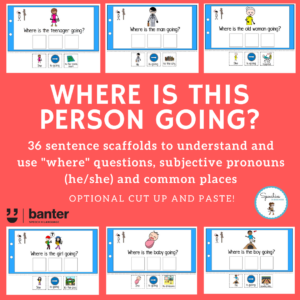
$5.99 including GST
This 40-page no preparation pack contains 36 sentence scaffolds to help people to practice answering (and asking) “where” questions and to answer “where” questions using “he” and “she”. To vary the activity, you can also cut up and paste individual sentence scaffolds in the available space.
The scaffolds also include common places to help stimulate semantic language development and background knowledge of places, as well as some ideas for day trips!
-
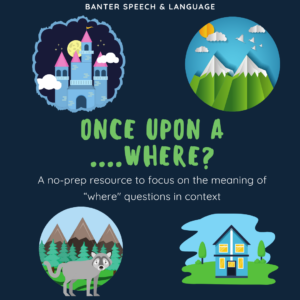
$6.99 including GST
This 45-page no-prep resource is designed to help children understand and use simple ‘where’ questions in context.
Set in an engaging world of fairy tales, this resource is designed to highlight the meaning of ‘where’ with the support of familiar concrete storybook locations (e.g. a house, forest, cave, castle, hill, river, and hill).
-
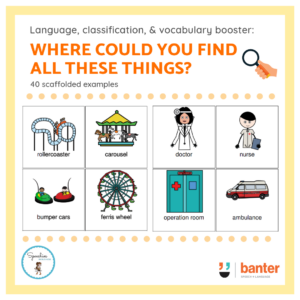
$5.99 including GST
In this 47-page no-prep pack, we target a Blank’s Level 2 comprehension task. Specifically, we ask students to think about the where we find semantically linked groups of people, animals and common objects. This stimulates students to increase their understanding of locations; as well as their understanding of the question word “where”. It can also help children to classify things and to build their semantic knowledge by reference to location.
-
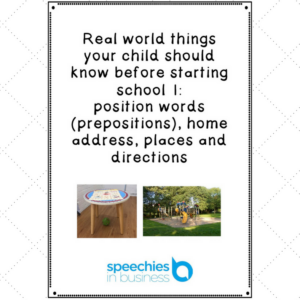
$8.99 including GST
This 18-page pack is designed to help you assess whether your preschooler student has the basic skills to orientate themselves to space: to know where they are.
If not, this pack contains some activities to help them learn key things they should know before starting big school.
-
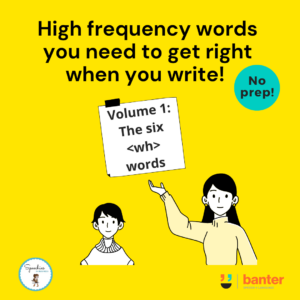
$10.00 including GST
In this no-prep 47-page resource, we include modules to help students to use the Six <wh> words (who, what, when, where, why, and which) in context by providing the following exercises:
-
- Dictation practice using the Six <wh> words in questions.
- Dictation practice using the Six <wh> words in sentences to join ideas together.
- Writing <wh> questions using picture cues.
- Writing <wh> questions to plan school reports and assignments about common topics.
- Practising getting commonly confused words right, e.g. where/wear, what/watt, which/witch.
- Writing <wh> questions when provided with answers, similar to Jeopardy.
- Writing a story with the Six <wh> words.





